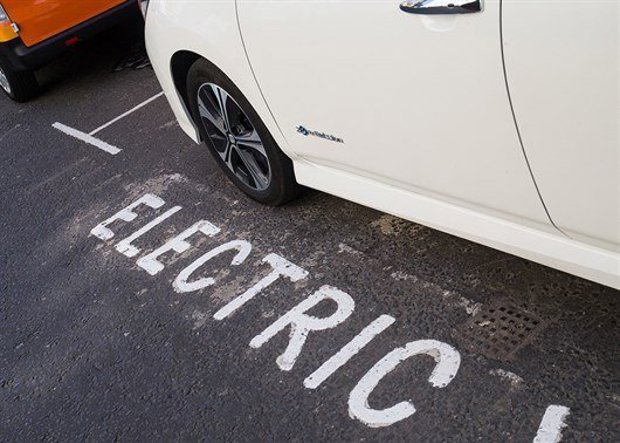Here's why EV pay-per-mile WON'T be in the November budget

You can't have failed to see recent headlines announcing that the government is planning to implement an EV pay-per-mile scheme in the November budget. Many see it as a done deal.
But speculation that the government will imminently start charging electric cars for every mile they drive is misplaced. And here's why it won't happen.
The automotive industry has been almost universal in its criticism of the rumoured plans, first reported by the Daily Telegraph.
Plans are said to include a 3p pay-per-mile charge for electric cars. However, further details are thin on the ground – which is why such a scheme is almost certainly not imminent.
Road pricing has been talked about for years. In December 2020, the then Conservative government launched an inquiry called ‘Zero emission vehicles and road pricing’. The report highlighted the tax system, combined with the 2030 sales ban on new petrol and diesel cars, would reduce tax revenues obtained from motoring to zero over the next twenty years.
What the current headlines refer to is, at this stage, merely another consultation. The latest of many. If we've learnt anything from these consultations it's that rarely do they bring change.
For starters, there is little clarity on how it would be administered. There is speculation it could involve motorists estimating – and paying for – their road usage for the year ahead.
If, says the BBC, they had driven fewer miles than they thought, they would be given a credit to carry over. If they had driven more, they would face a top-up charge.
This should immediately send alarm bells ringing. Such unprecedented plans are far too vague and open to abuse, to be remotely viable.
And the alternative – each EV driver carrying a black box logging every mile they drive – would also receive enormous pushback. Not to mentioned the cost.
Then there’s the government’s firm commitment to going electric, backed up this year by the introduction of the Electric Car Grant. A pay-per-mile scheme would simply be giving with one hand and taking with another.
Furthermore, where would the incentive be to make the switch, if it was only EVs that were to be charged for every mile they drove? Acceptance of electric cars is already shaky. Any pay-per-mile initiative would surely shatter any willingness to move into an electric car.
There’s already tacit admission of this, not least in truly bizarre rumours that plug-in hybrids would be charged a double rate – both for fuel duty at the pumps and a pay-per-mile fee for electric. This seems to make no account for how many miles each driver covers in EV or ICE mode. It smacks of being made up as it goes along.
Oh, and scrabbling further to justify the ‘poll tax on wheels’, there’s also been a suggestion that electric vans could escape the pay-per-mile charge, given how far behind (and how pivotal) commercial vehicles are in the switch to electric. But if the idea is for EVs to pay their way, why exclude CVs?
There are more holes in the plan than a slice of Swiss cheese.
What’s more, with the public surely turning against EVs upon the launch of any such scheme, car manufacturers would surely lobby hard for the government to duly ditch its Zero Emission Vehicle mandate – after all, the goalposts would have been changed.
It simply wouldn’t be feasible to insist car firms meet ever-stricter ZEV targets while at the same time so fundamentally disincentivising people from buying them.
This in itself would be tricky. Remember, the government has a legally-binding target of being zero emissions by 2050. Decarbonising automotive – it has banned the sale of non-EVs from 2035 – is a crucial part of this.
It is believed any pay-per-mile scheme for EVs may not go live until 2028. This, it is felt, would give the government time to work through the necessary hurdles.
But it is not as simple as that. The government requires primary legislation to be passed in order to press ahead with such an upheaval. And, would minsters, with one eye on the polls, willingly vote for the biggest change in automotive taxation in decades, if not ever? Particularly given all the ferocious feedback they would almost certainly receive from their constituents?
They have form here, having voted down the government's proposed welfare bill earlier this year.
Chancellor Rachel Reeves may well announce something about charging EVs an equivalent of fuel duty in the budget. But it won’t be an immediate change. And almost certainly won’t happen if it’s such an ill-thought-out initiative as suggested by the leaks.
There clearly needs to be changes to the current car tax and fuel duty system, but it won't happen for years and it won't see EVs being charged per mile from November.
Idealism will soon hit with reality – because the proposed plan lacks any sort of common sense and risks doing more harm than good to the fledgling roll-out of EVs in the UK.

